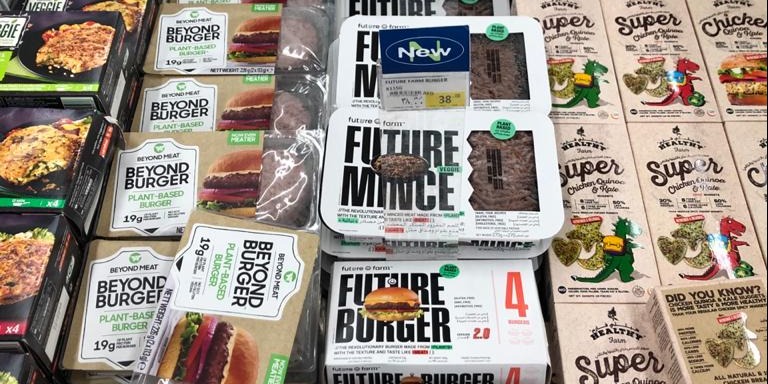Brazilian vegan start-up Fazenda Futuro waits for halal certification, eyes global expansion
Brazil is the world’s second largest exporter of meats yet the country is also blessed with a wealth of fruits and vegetables. A Rio-based food tech start-up hopes to introduce the world to a different side of Brazil – with its plant-based meat alternatives.
|
TOP 3 MEAT EXPORTERS IN 2019:
Source: ITC Trade Map |
Founded only recently in April 2019, Fazenda Futuro already has over 7,000 points of sale within Brazil, while its exports have reached countries as varied as Australia, Colombia, Mexico, Netherlands, Portugal, Sweden and Uruguay.
In September the start-up secured $21.5 million in investment that it says it will use to expand its line of plant-based meats and accelerate the launch of its burgers, meatballs and sausages to more international markets. This investment adds to the $8.5 million the company attracted last year.
“Negotiations are underway with Britain, China, India and the United States,” said Daniel Wanderley, Fazenda Futuro’s International Sales Director.
Since June 2020, the company’s products have also been available in the United Arab Emirates.
Using such ingredients as GMO-free soy, chickpeas and beetroot, Fazenda Futuro first introduced a plant-based burger, which was quickly followed by plant-based minced meat, meatballs and sausages. The firm uses added flavors to ensure the typical smoky, juicy taste of meat.
The company is in the process of being halal-certified by FAMBRAS, one of Brazil’s oldest and best-known certifying bodies.
Manufacturers of plant-based foods do not typically rush for halal certification but will do so if it makes market sense. “To also reach the more traditional Muslim consumer it is essential to be certified. In addition, to enter countries such as Saudi Arabia in the future we are obliged to be certified," said Wanderley.
The halal certification process started in April, according to Wanderley. “Due to COVID there has been some delay. But all necessary documentation has been sent and we expect our factories to be visited in January. Certification will follow shortly after.”
Fazenda Futuro was co-founded by Marcos Leta and Alfredo Strechinsky, who were behind the natural juice brand Suco Do Bem that launched in 2009. The co-founders sold the company last year to Latin American beverages giant Ambev. By then, they already had their eyes firmly set on the future.
Inspired by American companies such as Beyond Meat and Impossible Foods, Leta and Strechinsky were determined to enter the growing plant-based meats market. The aim was to launch a product that was at once healthy, could counter the negative impact of meat production on the environment and meet consumers’ growing concerns regarding animal welfare.
The U.S. Good Food Institute estimated last year that American grocery sales of plant-based foods replacing animal products grew by 29% over the last two years to $5 billion in 2020. Worth some $2 billion, plant-based milk was the most sold product, followed by other plant-based dairies ($1.4 bln) and plant-based meats ($939 mlm).
Yet it is plant-based meats that are set to take pole position in the coming years. A report from Polaris Market Research in November projected the global plant-based meat market to reach $35.4 billion by 2027.
According to the World Food Organization (FAO) global meat production in 2019 fell by 1% to 338.8 million tons. This had little to do with the increasing demand for plant-based products, but was mainly due to an African Swine Fever outbreak among pig herds in China.
In response, poultry production and exports in Brazil and elsewhere profited. With exports of 4.2 million tons in 2019, Brazil is the world’s leading chicken exporter, while another 9 million tons are reserved for domestic consumption.
It should come as no surprise, then, that Fazenda Futuro in October launched its first plant-based chicken, which consists of, among other ingredients, soy, peas and long vegetable fibers to capture the particular “bite” of chicken.
(Reporting by Peter Speetjens; Editing by Emmy Abdul Alim emmy.abdulalim@salaamgateway.com)
© SalaamGateway.com 2020 All Rights Reserved

